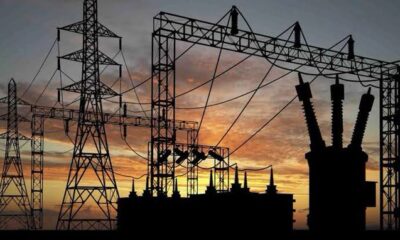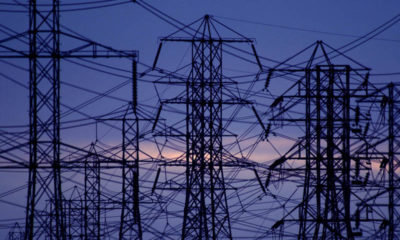Abuja Electricity Distribution Company (AEDC) has perfected plans to install 900,000 meters in the next eighteen months.
The power distributing company said the Federal Government who owned 40 percent of the company has provided enough funds for the installation of meters for customers under its franchisee.
According to the Managing Director of AEDC, Engr. Ernest Mupwaya, AEDC will commence the installation with 101,000 free meters to customers between now and December 2021.
Mupwaya said “The significance of this program is that it has been designed with sufficient resources to meter all customers.
“The Federal Government of Nigeria who has 40% shareholding, have sourced sufficient funding to support discos through a low interest shareholder loan that will make it possible for DISCOs to receive sufficient meters to close the metering gap for good.”
He recalled that “Over the years, the company has embarked on various metering initiatives such as CAPMI and MAP. These programs have achieved some successes that resulted in metering of over 300,000 customers.
“Currently, with the flag-off of this National Free Mass Program, AEDC will receive a total of 900,000 meters, at the cost of 23 billion which will be sufficient to meter all customers including replacement of defective meters.
“Between now and December 2021 AEDC has planned to install over 101,000 meters at a cost of N 6bn without charging customers. The rest of the meters will be installed 18 months after, through a comprehensive role out program that will result in simultaneous installations in all three states of Niger, Kogi and Nassarawa in addition to FCT.
“The metering of customers have a huge positive implication not only to the electricity industry but to the entire economy in a number of ways.”
“Firstly, massive metering will create jobs through installation and inspections of meters after installations.
“Secondly, other jobs will be created in meter manufacturing, logistics and supply chains associated with making meters available in Nigeria. Thirdly, massive metering will improve the transparency in electricity transaction which will result in increased revenues that can be channelled into service improvement.
“Improved Services will support improved economic activities that will impact both informal and formal sectors. This will lead to electricity industry transformation along with numerous spillover effect to the economy.
“On this note, I wish to appeal to customers to accept the meters and resist any attempt by unscrupulous people who may approach them, with an offer to compromise the meters.
“The regulator NERC has put in place punitive penalties for those caught bypassing the meter to the extent that the fines override the perceived benefit apart from damaging the good working relationship with the discos.
“Energy theft also diverts resources which are meant to improve the service being provided. We believe that we can work together in ensuring that the metering challenge is brought to permanent end as we face a new dawn.
“However I want to acknowledge that the majority of our customers are law abiding citizens and they have been supporting us through the difficulties associated with transactions through estimated billing.
“I pay tribute to our customers as we cut the corner and face a new dawn in electricity transformation.”

 Education4 weeks ago
Education4 weeks ago


 News3 weeks ago
News3 weeks ago


 Business3 weeks ago
Business3 weeks ago


 Technology3 weeks ago
Technology3 weeks ago


 Investment4 weeks ago
Investment4 weeks ago
 Investment3 weeks ago
Investment3 weeks ago
 Telecommunications4 weeks ago
Telecommunications4 weeks ago


 Banking Sector3 weeks ago
Banking Sector3 weeks ago



















